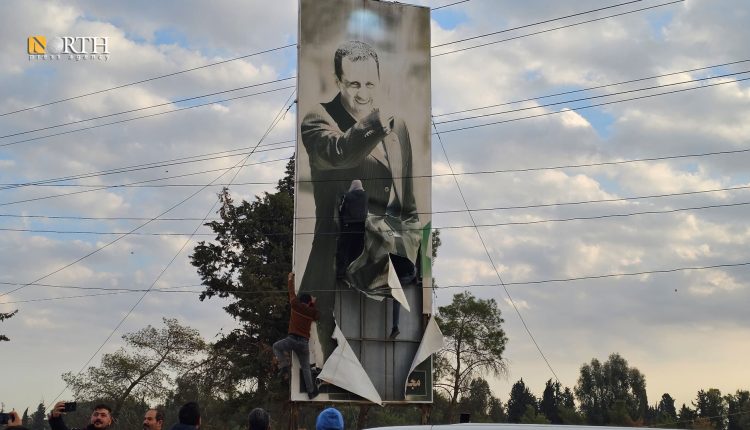
By Khalaf Ma’o
QAMISHLI, Syria (North Press) – The rapid and unexpected collapse of the former regime’s forces led, within days, to the arrival of the Military Operations Command, directed by Hayat Tahrir al-Sham (HTS) in the Syrian capital, Damascus. This resulted in Bashar al-Assad fleeing and the fall of his inherited rule, which spanned over 50 years under both father and son.
In the aftermath of al-Assad’s ousting, Syrians are now anticipating the country’s future and the form of its new governance.
Head of Tyranny
An official within the Syrian Democratic Council (SDC) described the toppling of al-Assad as the first step toward building a new Syria. Referring to al-Assad as “the head of tyranny,” Ali Rahmoun, the co-chair of the SDC, told North Press.
“Regardless of which entity brought him down, the Syrian people played a significant role in his downfall.”
He emphasized the need for collective Syrian efforts, urging all groups to work together for the future of the country. Rahmoun added, “Given the current circumstances, all Syrian national and democratic forces will have an important role in shaping the future of Syria.”
He called for the participation of all Syrians without marginalizing or excluding any faction, advocating for a “pluralistic, decentralized, and democratic Syria.”
Rahmoun revealed that the council is in communication with various Syrian factions, including HTS, through unnamed intermediaries. He affirmed the SDC’s openness to all parties and announced plans to initiate broader engagement with Syrian groups to ensure the country’s future.
He stressed the importance of establishing a state that ensures “citizenship and equality for all Syrians, regardless of race, ethnicity, or religion.”
Civil state
Yahya al-Aridi, a Syrian opposition figure and former member of the Syrian Negotiation Commission, highlighted the necessity of striving for a “civil state” for the benefit of all Syrians.
While the specifics of Syria’s future remain unclear, al-Aridi told North Press, “It is in the Syrians’ best interest to look toward a civil state that guarantees equal rights for all citizens under the rule of law.”
Following the regime’s fall, the Syrian National Coalition (SNC) announced it was working to form a transitional governing body with full executive authority.
Hadi al-Bahra, head of the SNC, told Reuters during the Doha Forum that Syria requires an 18-month transitional period to create a safe, neutral, and stable environment for conducting free elections.
Meanwhile, the HTS’ Military Operations Command announced the appointment of Muhammad al-Bashir, head of the Salvation Government in Idlib, to form a new government to manage the transitional period.
International reactions
U.S. President Joe Biden described Syria as being in a state of danger and uncertainty, noting that, for the first time in years, Russia, Iran, and Hezbollah no longer hold significant influence in the country.
The U.S. Department of State stated it was monitoring the actions of the “rebels” who entered Damascus.
UK Prime Minister Keir Starmer welcomed the end of al-Assad’s rule, adding it is still early to determine how the UK will engage with those who ousted al-Assad.
Starmer urged all parties in the conflict to protect civilians, ensure humanitarian aid reaches those in need, and work toward a political solution to secure Syria’s future.
German Chancellor Olaf Scholz expressed his country’s readiness to contribute to a political resolution that leads to peace in Syria. He stressed the importance of restoring the rule of law and ending foreign interference, specifically referencing Russia, Iran, and Turkey.
